GEOFFREY ALAN COX – ENGINEER, EDUCATOR, AND VISIONARY, 1926 – 2003
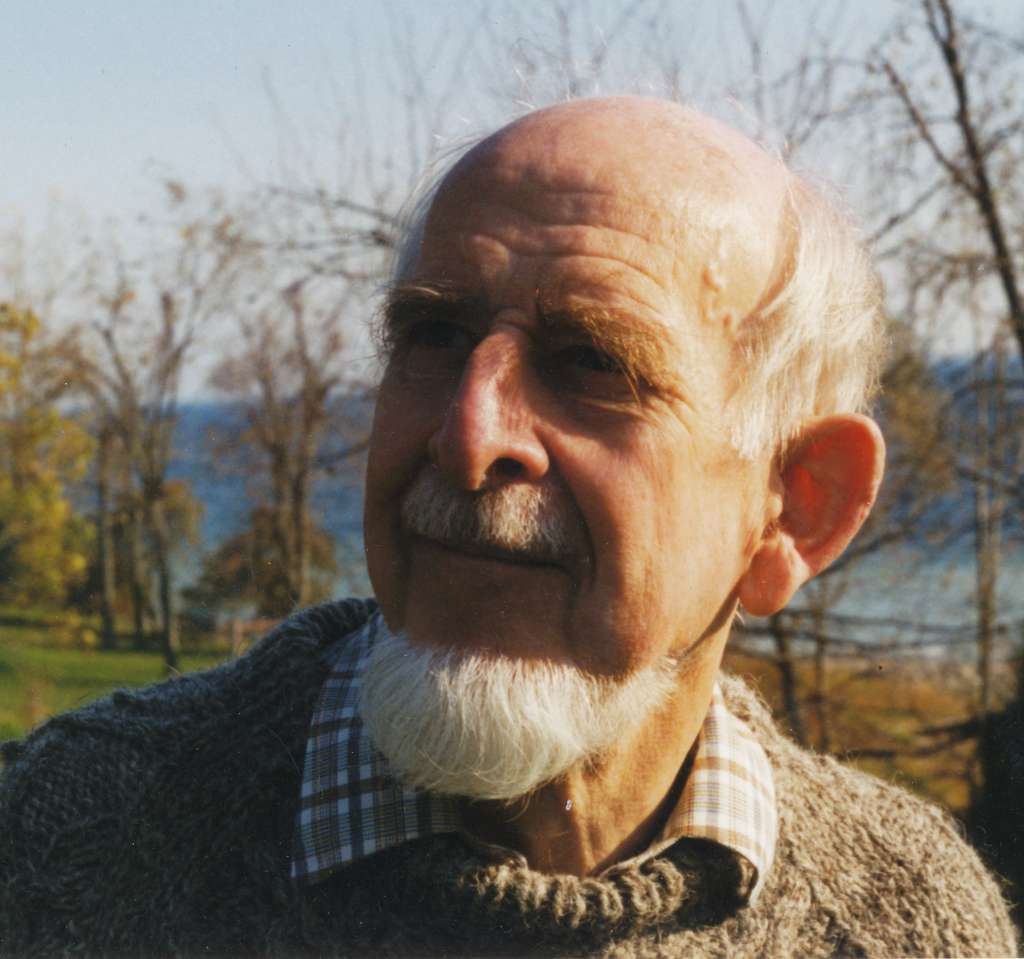
The use of an abandoned copper mine in the Peak District as an educational resource was a realisation of the vision of an enthusiastic but modest mining engineer. On a visit to the Peak District in the early 1960s he saw the “Folly” – the building with a green copper spire – and decided there and then that he had to buy it. This he did, in 1963. Nobody was more astonished than he was, to find the entrance to an ancient copper mine in his back garden.
Geoffrey Alan Cox was born in 1926 and went to school at Westcliff-on-Sea, Essex. He served in the RAF and then studied at the Royal School of Mines, Imperial College, London. After graduating in 1953, he worked in the mining industry in Canada, Peru and elsewhere, and became a highly respected independent consultant.
He first came to Ecton while working as a consultant at Earle’s Cement at Cauldon, where he built the ball mills. He was living in Canada at the time and just prior to returning home, he noticed that the Folly, also known as ‘The Castle’, at Ecton was for sale and decided to purchase it. The purchase of the Folly was completed in October 1963 and it was soon after this that he became aware of the existence of the mine; people knocked on the door and asked if he had the key to the mine! By 1972 he had acquired the mineral rights for the Ecton Mine from the Trustees of Duke of Devonshire. He, as a mining engineer, was proud and delighted to own a copper mine and was amused that it happened to be located in his back garden.
For some years, Geoff and his wife Elizabeth owned the Black Lion Inn at Butterton. On one Saturday night, the telephone rang and Geoff disappeared from behind the bar. Thirty minutes later he was back with a suitcase, cheerfully explaining that he was needed at a mine in Peru. He travelled the world on mining business, but one suspects it was his educational work at Ecton where he found most fulfilment.
In 1970 Geoff was asked to establish – and became the Director of – the Mineral Manpower and Careers Unit (MIMCU) based at the Royal School of Mines. Although the Unit was administratively based at Imperial College, London, in practice educational visits to Ecton always formed a core of its activities. Geoff was the leading light in introducing many students to mining and encouraging teachers with his exciting courses; but he also laid a good foundation for others. He is remembered best for his exciting educational ideas.
One of these was the ‘Phoenix’ programme initiated by Geoff Cox, to train science teachers through a series of 7-day courses, which included an on-site feasibility study of a large dormant and marginally economic mineral deposit in south-west England. The idea was that these courses would establish links between schools, the mining industry, and university departments. Between 1971 and 1978 the programme enabled several hundred teachers each to bring small groups of sixth-form students to weekend courses introducing them to modern industrial methods that were relevant to school syllabuses.
Thus, Geoff used MIMCU as a vehicle to bring together science and geography teachers with the mineral industry. His philosophy of providing high quality courses for teachers, using funds provided by the industry, and visiting mining and mineral processing sites in the UK, was highly successful in increasing the understanding of the minerals industry by educators, with development of effective liaison between teachers in schools, university mining departments, and people in the industry. In the 1980s he developed a series of study tours to mining operations in Canada, Scandinavia and elsewhere for teachers and students. These visits showed participants by personal experience the nature, scale, and technological capabilities of the industry, and the prospects for a career in mining. One important initiative by Geoff was to persuade the Chamber of Mines of South Africa to set up a parallel Phoenix operation in South Africa. He led this initially, but Don Walton then further developed the programme which included teacher courses, student teacher courses and school pupil visits as well as resource material for schools. At the heart of these activities, and this was also true of the teacher courses in the UK, was the innovative use of extended case studies to deliver the content and concepts.
The Unit developed resources for schools such as the “Let’s Look At …” series. Materials on sand, china clay, and fluorspar materials were written by teams of teachers in collaboration with industry and issued together with associated sample sets. Geoff was especially pro-active in developing a mineral processing option within the Nuffield A-level chemistry curriculum, enabling several thousand students and their teachers to visit the study centre and mine at Ecton Hill. These courses expanded to include work for A-level geology, physics, and environmental science students. With the support of colleagues at the Royal School of Mines, he had developed the Mineral Process Chemistry Special Study. This included analysis of a copper ore – based on samples from spoil heaps at Ecton which had been rejected by the 18th century miners but still contained 2% copper (well above today’s normal cutoff grades!). The ‘special study’ element of the mineral processing option allowed him to provide experience of chemistry at work in the ‘real world’.
By the early 1980s the educational role of MIMCU had been clearly defined, with projects for university undergraduates, A-level students (the 16-19 age group), the creation of study packs for 11–16-year-olds on responsible use of Earth resources, and the involvement of as many teachers as possible in weekend fieldwork courses. Geoff Cox encouraged many of these teachers to take part in, and to lead, many of the A-level students’ courses not only at Ecton but also in Wales, Cornwall, the north Pennines, and Scotland.
MIMCU itself was funded, at times up to £150,000/year, by large multinational mining corporations including Rio Tinto, Anglo-American, and Consolidated Goldfields. However, towards the end of the 1980s with consolidation and reorganisation of the minerals industry, the funding steadily diminished. Unfortunately, by 1990 the funding had dried up to the extent that MIMCU was forced to close.
David Thompson gave an excellent summary of Geoff Cox’s visionary role in MIMCU in an article published in Geoscientist in 1991. This article also includes acknowledgement of the important role played by Eileen Barrett in the development and work of MIMCU – which of course continued beyond 1991 into her active support of EHFSA, though as she returned to her teaching after the closure of MIMCU many of the more demanding roles were taken on by Zoë Fleming. Eileen was Geoff’s second-in-command/right-hand woman at MIMCU. But her role went much further than that, as she was deeply involved in Ecton. Initially she was responsible for all the Ecton school bookings, managing the tutor teams and several other aspects. Eileen was formerly a chemistry teacher at Richmond-upon-Thames College of Further Education, and after joining MIMCU worked part-time at its office in Imperial College. It was Eileen who did much of the development of curriculum materials, as well as managing the flow of impossible ideas coming from Geoff, and sorting them into the few that could actually work, doing the essential organising to ensure that everything went smoothly, even during the trips to Canada and elsewhere.
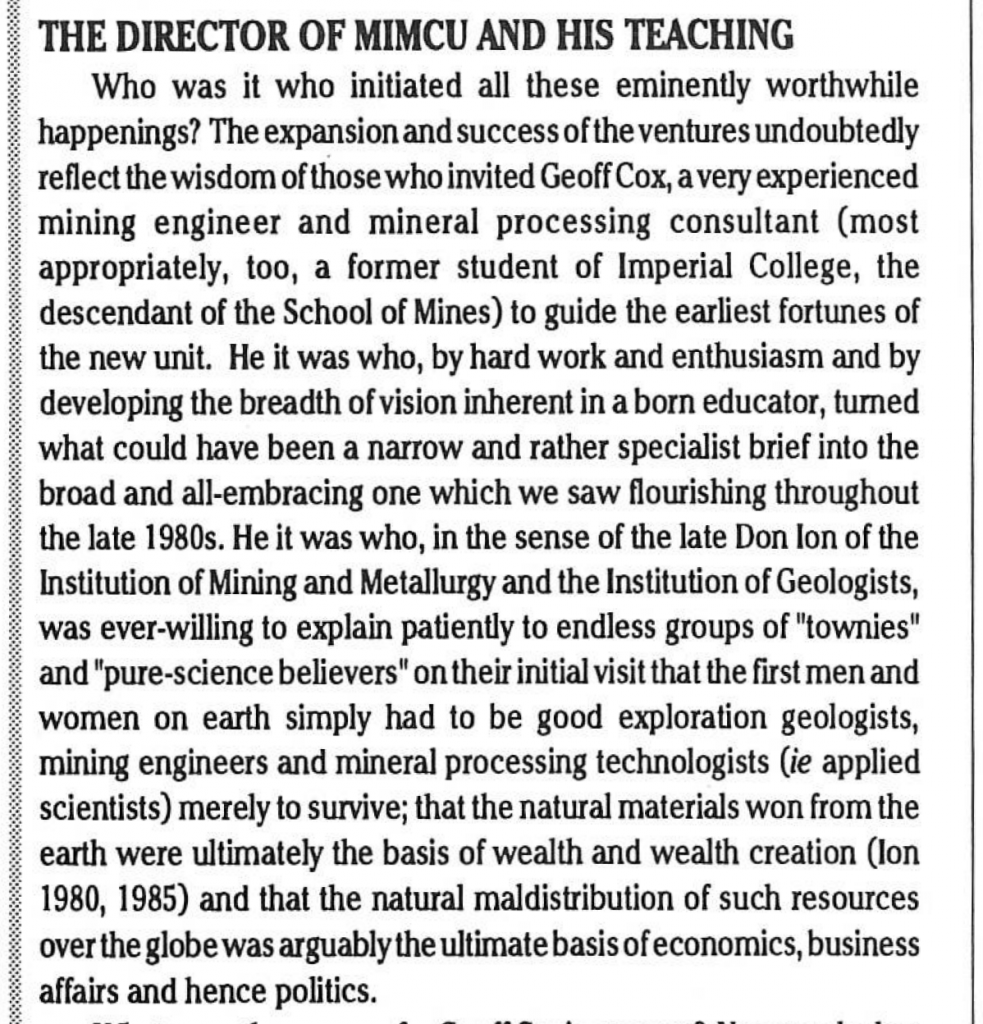
By the time MIMCU closed, Geoff had already started to use the Ecton Mine as a base to run courses, for teachers and students. These courses included underground visits into Salts Level. He had developed the purpose-built Study Centre adjacent to the Folly, with field laboratory facilities, and set up the outdoor classroom with spectacular views across the Manifold valley. A core group of teachers were infected by Geoff Cox’s enthusiasm and had been volunteering to teach without remuneration at weekends and in holidays. With closure of MIMCU, these teachers wanted nonetheless to continue, rather than letting the courses end with MIMCU. Geoff supported them in the establishment of the Ecton Hill Field Studies Association (EHFSA), which ran one-day courses throughout the 1990s, mainly at weekends. Schools were increasingly finding weekends difficult, but weekday courses became possible as senior members of the teaching team reached retirement. During the 1990s over a thousand students a year were attending courses at Ecton – not only A level but Year 9 upwards, as well as university level and adult education groups.
Also, during the 1990s, educational use was also expanding into research activities. The Earth Science Teachers Association annual conference in 1997 was held at Keele University. Notes for a field excursion to Ecton Mine include the following words: “Current research projects include re-vegetation of the waste tips and studies of the fluid inclusions in local calcite”.
Geoff himself had endless enthusiasm for taking parties of school and university students underground and explaining the practicalities of mining. It was his concept that a visit to Ecton should provide not just an insight into historical technologies and activities, but should also stimulate the visitor to consider current and future problems in science, technology, economics, and resource ecology. The techniques established by the people who worked with MIMCU proved to be a cost-effective means of education. This was written by Geoff Cox himself in 1990 and quoted by David Thompson in 1991, but remains true today, 20 years after Geoff’s death.
Soon after MIMCU closed Geoff began to explore ways in which financial support could be secured for the study centre and mine. He was determined to find a solution that would allow it to continue to be used for educational and research purposes. Until that could be achieved, he supported the costs of maintenance of the centre out of his own pocket. Sadly in 1997 Geoff was diagnosed with Parkinson’s disease and needed steadily more support from his wife Elizabeth and his niece Lisa Morrow, but his mind remained sharp and his enthusiasm for mining education undimmed until the end, at Macclesfield Hospital on 2nd November 2003. However, the problems and costs of running courses in a disused mine were increasing, especially the problems faced by all educational fieldwork today – safety and insurance matters. An Adventure Activities Licence for underground trips partially addressed these problems, but the foot-and-mouth epidemic in 2001 forced a complete suspension of the courses.
For a while in the early 2000s there was little or no educational work at Ecton. Geoff knew that something needed to be done to ensure continuation of his work at Ecton, and despite his illness he continued to search for a solution. He approached the National Trust and the Princes Trust to see if they were interested in what Ecton had to offer, but financial considerations prevented either from going ahead. When that failed, he expressed an intention to set up a Trust for the mine and initially wanted the mine to be donated to the Institute of Materials, Metallurgy and Mining (IoM3). A number of meetings, many at his home at the Back of Ecton, were held to discuss the options and draw up a list of potential trustees. Contact with IOM3 was established through Graham Woodrow, deputy CEO of IOM3, who in subsequent meetings with EHFSA made clear that the future use of the mine depended on re-starting educational visits which had been suspended for some time, but it became clear that IOM3 were not themselves interested in taking responsibility for the mine. It would need to be a separate Trust. Geoff was enthusiastic to form this and in June 2003 invited John Bramley (former mine manager at Glebe fluorspar mine, Derbyshire) to be the first chairman. A key meeting was held at the IOM3 office in Doncaster on 11 July 2003, attended by several interested parties, though sadly Geoff Cox was then too ill to attend in person. A decision in principle was agreed to establish a Trust to manage the mine for educational purposes.
Subsequent to his death, Geoff’s widow Elizabeth expressed her continuing support for the formation of a Trust, as this had been her late husband’s wish. John Bramley agreed to carry on where things left off. Ultimately the Ecton Mine Educational Trust (EMET) was formed, with its first meeting taking place on October 4th 2005. The Folly was sold separately by auction and is now the home of a local solicitor, but the study centre remains as part of the Trust’s property and is now named the G.A. Cox Study Centre. Geoff Cox devoted nearly half his life to giving inspiration to teachers and students alike through MIMCU, EHFSA and by virtue of his ownership of Ecton Mine. In 2000, he was awarded the R.H. Worth Prize by the Geological Society of London in recognition of his work with MIMCU and EHFSA and his success in geological education. His legacy remains and has been extended since his death by revival and continuation of his work through EMET (owning and maintaining the mine and facilities) and EHFSA (providing the teaching), with his infectious enthusiasm continuing to inspire, a generation beyond his death. As written by Alastair and Zoë Fleming in 2003, “a long-term future for Ecton as an educational resource, for all levels from primary to adult, would be a fitting memorial to Geoff Cox and the ideals he held”. 20 years later we see this fitting memorial in action. After a bumpy ride, and despite closure during the recent pandemic, Ecton is now reopened for business – the business of education, its scope now broadened to include advanced scientific research, with secure financial underpinning.
Acknowledgements: this biography has been compiled from sources including obituaries by Alastair and Zoë Fleming (Teaching Earth Science vol.28, 2003 and NSGGA Bulletin 68, 2004), Lindsey Porter (PDMHS Newsletter 109, 2004), an article about MIMCU and Geoff Cox by David Thompson (Geoscientist, vol.1, 1991), an article by John Bramley (Imperial Engineer, issue 4, 2006), notes by Eileen Barrett (Summary of Background to the Formation of the Ecton Mine Educational Trust, 2013), conversations with Geoff Cox’s niece, Lisa Morrow (2023) to whom special thanks are due for detailed assistance with fact-checking and editing, and for the help of EMET and EHFSA colleagues who knew and worked with Geoff.





 The powder house, where dangerous explosives were stored. This small shed was placed well away from other buildings and was erected in 1884. The interior was originally lined with wooden panels as an added precaution against accidentally creating sparks.
The powder house, where dangerous explosives were stored. This small shed was placed well away from other buildings and was erected in 1884. The interior was originally lined with wooden panels as an added precaution against accidentally creating sparks.

 was lowered on one side and it was converted to a field barn. The steam engine was located in the far half of the building, while its boiler was in the near half. A short distance upslope there was a small reservoir pond for the boilers fed by water brought up from the mine.
was lowered on one side and it was converted to a field barn. The steam engine was located in the far half of the building, while its boiler was in the near half. A short distance upslope there was a small reservoir pond for the boilers fed by water brought up from the mine.


 In the 1760s-80s the internationally important Deep Ecton Copper Mine made a fortune for the Dukes of Devonshire. The first copper was mined here long before, in the Bronze Age over 3,500 years ago. The Dukes, who owned northern and western parts of the hill, had their mines worked in-house for over 50 years from 1760. From the 1820s private mining companies embarked on a fruitless search for further rich ore deposits. The mines were finally abandoned in 1889. While the 19th century ventures lost investors’ money, with them at best only finding other peoples’ leavings, they kept local miners in work for decades.
In the 1760s-80s the internationally important Deep Ecton Copper Mine made a fortune for the Dukes of Devonshire. The first copper was mined here long before, in the Bronze Age over 3,500 years ago. The Dukes, who owned northern and western parts of the hill, had their mines worked in-house for over 50 years from 1760. From the 1820s private mining companies embarked on a fruitless search for further rich ore deposits. The mines were finally abandoned in 1889. While the 19th century ventures lost investors’ money, with them at best only finding other peoples’ leavings, they kept local miners in work for decades.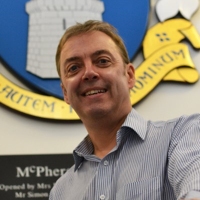
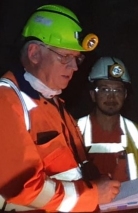
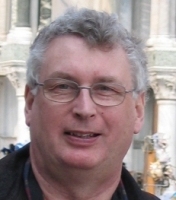
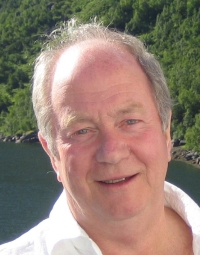
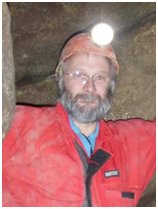 I am an exploration and mining geologist (C. Geol) with over 25 years of experience in the deep geological disposal of radioactive waste and 7 years of experience of exploration, environmental impact assessment and mining feasibility for the Kayelekera uranium deposit in Northern Malawi, Africa. I retired from the British Geological Survey in 2016 and am currently a member of the Government’s Committee on Radioactive Waste Disposal. I undertook a PhD on caves and mines in the Peak District and, as an active caver and mine explorer, have been studying the underground world of the Peak District since the mid 1970’s, including the mines of the Ecton Area. I am a director (editor) of the Peak District Mines Historical Society and the mine manager of their Temple Mine in Matlock Bath.
I am an exploration and mining geologist (C. Geol) with over 25 years of experience in the deep geological disposal of radioactive waste and 7 years of experience of exploration, environmental impact assessment and mining feasibility for the Kayelekera uranium deposit in Northern Malawi, Africa. I retired from the British Geological Survey in 2016 and am currently a member of the Government’s Committee on Radioactive Waste Disposal. I undertook a PhD on caves and mines in the Peak District and, as an active caver and mine explorer, have been studying the underground world of the Peak District since the mid 1970’s, including the mines of the Ecton Area. I am a director (editor) of the Peak District Mines Historical Society and the mine manager of their Temple Mine in Matlock Bath.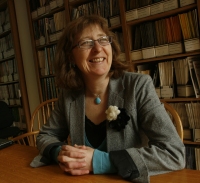 mongst geologists and others involved in the application of geoscience, particularly through the promotion of professional titles such as CEng, CGeol, and EurGeol. She has served on the Council of the Geological Society of London and is a past President of the European Federation of Geologists. For many years, she has been a member of the Pan European Reserves and Resources Reporting Committee (PERC).
mongst geologists and others involved in the application of geoscience, particularly through the promotion of professional titles such as CEng, CGeol, and EurGeol. She has served on the Council of the Geological Society of London and is a past President of the European Federation of Geologists. For many years, she has been a member of the Pan European Reserves and Resources Reporting Committee (PERC).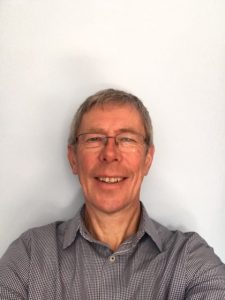 Phil in Organic Chemistry, Nottingham Uni 1977-79, awarded 1981
Phil in Organic Chemistry, Nottingham Uni 1977-79, awarded 1981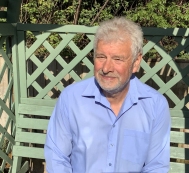 I am a geoscientist with more than 45 years of experience. After working as a mine geologist in the Yorkshire Coalfield for 12 years, I moved on to seismic exploration for coal, potash and other minerals focussing on seismic interpretation and delineating geological structure to aid mine planning. My prospect experience includes projects in UK, Spain, Turkey, Australia, Africa, Argentina and Canada.
I am a geoscientist with more than 45 years of experience. After working as a mine geologist in the Yorkshire Coalfield for 12 years, I moved on to seismic exploration for coal, potash and other minerals focussing on seismic interpretation and delineating geological structure to aid mine planning. My prospect experience includes projects in UK, Spain, Turkey, Australia, Africa, Argentina and Canada.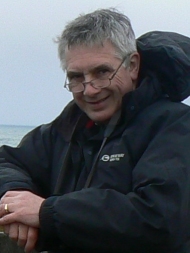 ng and engineering around the world. Although I am now retired I continue to hold Board appointments with national and international regulatory and standards organisations which I find professionally stimulating and thoroughly rewarding.
ng and engineering around the world. Although I am now retired I continue to hold Board appointments with national and international regulatory and standards organisations which I find professionally stimulating and thoroughly rewarding.